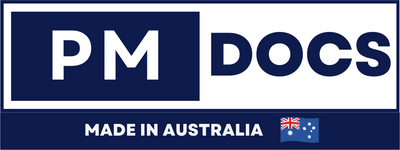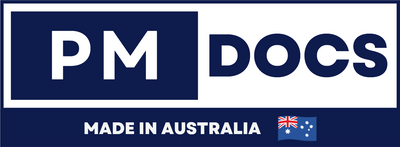List Of ISO 27001 Certified Companies In Australia
Securing The Digital Frontier: A Guide To ISO 27001 Certified Companies In Australia
In an increasingly interconnected world, where data breaches and cyber threats loom large, establishing robust information security practices is no longer a luxury but a fundamental necessity. For Australian businesses navigating this complex landscape, the ISO 27001 standard stands out as the international benchmark for Information Security Management Systems (ISMS). Achieving ISO 27001 certification demonstrates a profound commitment to protecting sensitive information, building trust with stakeholders, and ensuring business resilience.

Many organisations, both large and small, are keen to identify ISO 27001 certified companies in Australia – whether for partnership opportunities, supply chain assurance, or simply as a benchmark for their own security journey. While compiling an exhaustive, real-time list presents unique challenges, this guide will delve into what ISO 27001 entails, its significance in the Australian context, the types of companies pursuing it, and practical ways to ascertain a company's certification status.
What Is ISO 27001? The Gold Standard For Information Security
ISO/IEC 27001 is an international standard published by the International Organization for Standardization (ISO) and the International Electrotechnical Commission (IEC). It provides a framework for establishing, implementing, maintaining, and continually improving an Information Security Management System (ISMS). An ISMS is a systematic approach to managing sensitive company information so that it remains secure. It includes people, processes, and IT systems.
Key principles of ISO 27001 include:
-
Risk Assessment and Treatment: Identifying information security risks and implementing appropriate controls to mitigate them.
-
Context of the Organisation: Understanding internal and external factors that affect information security.
-
Leadership Commitment: Ensuring top management support and involvement.
-
Planning: Defining objectives and plans to achieve them.
-
Support: Providing resources, competence, awareness, and communication.
-
Operation: Implementing and controlling the processes needed to meet the ISMS.
-
Performance Evaluation: Monitoring, measuring, analysing, and evaluating the ISMS.
- Improvement: Continually improving the suitability, adequacy, and effectiveness of the ISMS.
By adopting ISO 27001, organisations don't just implement a checklist of security controls; they embed security into their culture, processes, and technologies, making it an integral part of their operations.
The Australian Context: Why ISO 27001 Is Crucial Down Under?
Australia faces a rapidly evolving cyber threat landscape. The Australian Cyber Security Centre (ACSC) regularly reports on increasing cybercrime and data breaches affecting businesses and individuals. In this environment, ISO 27001 certification offers significant advantages:
-
Compliance with Regulatory Requirements: Australia's Privacy Act 1988, particularly with its Notifiable Data Breaches (NDB) scheme, places significant obligations on organisations to protect personal information. While ISO 27001 isn't a direct legal requirement, its comprehensive framework significantly aids in meeting these obligations and demonstrating due diligence.
-
Enhanced Trust and Reputation: Australian consumers and businesses are increasingly wary of data privacy. Certification acts as a powerful signal of an organisation's commitment to protecting sensitive information, enhancing trust with customers, partners, and regulators.
-
Competitive Advantage: In competitive markets, ISO 27001 can differentiate a company, especially when tendering for government contracts or engaging with larger enterprises that demand high security standards from their supply chain.
- Reduced Risk and Costs: Proactive risk management reduces the likelihood and impact of security incidents, potentially saving organisations substantial costs associated with breaches, fines, and reputational damage.
The Challenge Of Listing All Certified Companies In Australia
It's important to state upfront that there isn't one single, publicly accessible, real-time database that lists all ISO 27001 certified companies in Australia. Here's why:
-
Dynamic Nature of Certification: ISO 27001 certifications have a validity period (typically three years, with annual surveillance audits). Companies may gain, lose, or allow their certification to lapse. Any static list would quickly become outdated.
-
Commercial Sensitivity: Some companies consider their certification status and details around it as commercially sensitive information.
-
Multiple Certification Bodies: While ISO sets the standard, various accredited certification bodies (CBs) operate in Australia (e.g., SAI Global, BSI, TÜV SÜD, SGS, Intertek, etc.). Each CB maintains its own register of certified clients, but there's no central aggregator across all of them.
- Scope of Certification: A company might be certified for a specific department, product, or service, rather than its entire operation. The scope is crucial and specified in their certificate.
Therefore, while we cannot provide an exhaustive, live list, we can outline the types of organisations that commonly pursue and benefit from ISO 27001, and guide you on how to identify them.
Benefits Of ISO 27001 Certification For Australian Businesses
Achieving ISO 27001 offers a multitude of strategic and operational advantages:
| Benefit | Description |
|---|---|
| Enhanced Security Posture | Implements a robust, systematic approach to identifying, assessing, and managing information security risks. |
| Regulatory Compliance | Assists in meeting obligations under the Privacy Act, Notifiable Data Breaches scheme, and other industry-specific regulations. |
| Increased Trust & Reputation | Demonstrates a clear commitment to data protection, building confidence with customers, partners, and investors. |
| Competitive Advantage | Differentiates the company in tenders and provides assurance to clients, particularly in sensitive sectors. |
| Improved Operational Efficiency | Streamlines security processes, reduces redundant efforts, and fosters a security-aware culture across the organisation. |
| Risk Mitigation & Resilience | Minimises the likelihood and impact of security breaches, ensuring business continuity and reducing potential financial and reputational losses. |
| Supply Chain Assurance | Provides assurance to clients and partners that their data (when processed by the certified entity) is handled securely. |
| International Recognition | A globally recognised standard, facilitating business with international partners and market access. |
Indicative Industries And Types Of Companies Pursuing ISO 27001 In Australia
While specific company names are dynamic and best verified directly, here are common sectors and types of Australian organisations that frequently seek or hold ISO 27001 certification:
-
Cloud Service Providers (CSPs) & Data Centres: Companies offering Infrastructure-as-a-Service (IaaS), Software-as-a-Service (SaaS), Platform-as-a-Service (PaaS), and physical data hosting. Given they manage vast amounts of client data, robust security is paramount.
-
Financial Institutions: Banks, credit unions, investment firms, and fintech companies dealing with highly sensitive financial data and subject to stringent regulatory oversight.
-
Government Contractors: Organisations that provide services or technology to federal, state, or local government bodies often require ISO 27001 as a mandatory or highly preferred prerequisite for tenders.
-
Healthcare Providers & HealthTech Companies: Hospitals, clinics, medical research organisations, and developers of health-related software. They handle extremely sensitive personal health information (PHI).
-
Professional Services Firms: Legal practices, accounting firms, and consulting agencies that manage confidential client information.
-
Telecommunications Companies: Providers of internet, mobile, and fixed-line services, responsible for vast networks and communication data.
-
E-commerce & Retailers (with significant online presence): Companies processing customer payment details and personal data on a large scale.
- Large Enterprises & Multinational Corporations: Organisations with complex IT environments and a global footprint often standardise their security posture with ISO 27001.
Many multinational companies with Australian operations, if they hold global ISO 27001 certification, will typically extend this to their Australian entities.
How To Identify ISO 27001 Certified Companies In Australia
If you need to verify an Australian company's ISO 27001 status, here are the most reliable methods:
-
Direct Communication: The most straightforward way is to directly ask the company. They should be able to provide a copy of their ISO 27001 certificate, which includes the scope of certification and the name of their certification body.
-
Company Websites: Many certified organisations proudly display the ISO 27001 logo and a statement about their certification on their website, often in their "About Us," "Security," "Compliance," or "Trust Centre" sections.
-
Certification Body Registers: You can check the publicly available registers of accredited certification bodies that operate in Australia. While you won't find a single aggregated list, if you know which CB an organisation uses, you can often search their database.
-
Examples of prominent CBs with Australian operations:
-
SAI Global: A major Australian-based certification body. Their website often has a search function for certified clients.
-
BSI (British Standards Institution): Another global leader with a strong presence in Australia. Check their "Client Directory" or similar.
-
TÜV SÜD, SGS, Intertek: Other international CBs with Australian branches.
-
SAI Global: A major Australian-based certification body. Their website often has a search function for certified clients.
-
Examples of prominent CBs with Australian operations:
- Due Diligence in Tenders/RFPs: If you are a prospective client or partner, make ISO 27001 certification a requirement in your Request for Proposal (RFP) or due diligence process.
The Certification Journey: A Brief Overview
The path to ISO 27001 certification, while rigorous, is a structured process:
-
Define Scope: Identify which parts of the organisation and which information assets will be covered by the ISMS.
-
Leadership & Commitment: Secure top management buy-in and resources.
-
Risk Assessment: Identify, analyse, and evaluate information security risks.
-
Risk Treatment: Select and implement appropriate controls from Annex A of ISO 27001 (or other relevant control sets) and justify their selection.
-
Develop ISMS Documentation: Create policies, procedures, and records.
-
Internal Audit: Conduct an internal audit to assess the effectiveness of the ISMS.
-
Management Review: Top management reviews the ISMS's performance.
-
Stage 1 Audit (Document Review): An external auditor reviews the ISMS documentation.
-
Stage 2 Audit (Main Audit): The auditor assesses the implementation and effectiveness of the ISMS in practice.
-
Certification: Upon successful audit, the organisation receives its ISO 27001 certificate.
- Surveillance & Re-certification: Annual surveillance audits ensure ongoing compliance, followed by a re-certification audit every three years.
Conclusion
ISO 27001 certification represents a significant commitment to information security, reflecting an organisation's dedication to protecting sensitive data, managing risks, and fostering trust. While a comprehensive, real-time list of all certified companies in Australia remains elusive due to the dynamic nature of certifications and commercial sensitivities, understanding the standard, its benefits, and the types of organisations that pursue it empowers businesses and individuals to make informed decisions.
For any Australian entity looking to partner, invest, or procure services, actively seeking out and verifying ISO 27001 certification is a prudent step towards ensuring the security of your own information in today's digital age. It's a testament to a modern organisation's resilience and responsibility in navigating the ever-present threats of the digital frontier.




